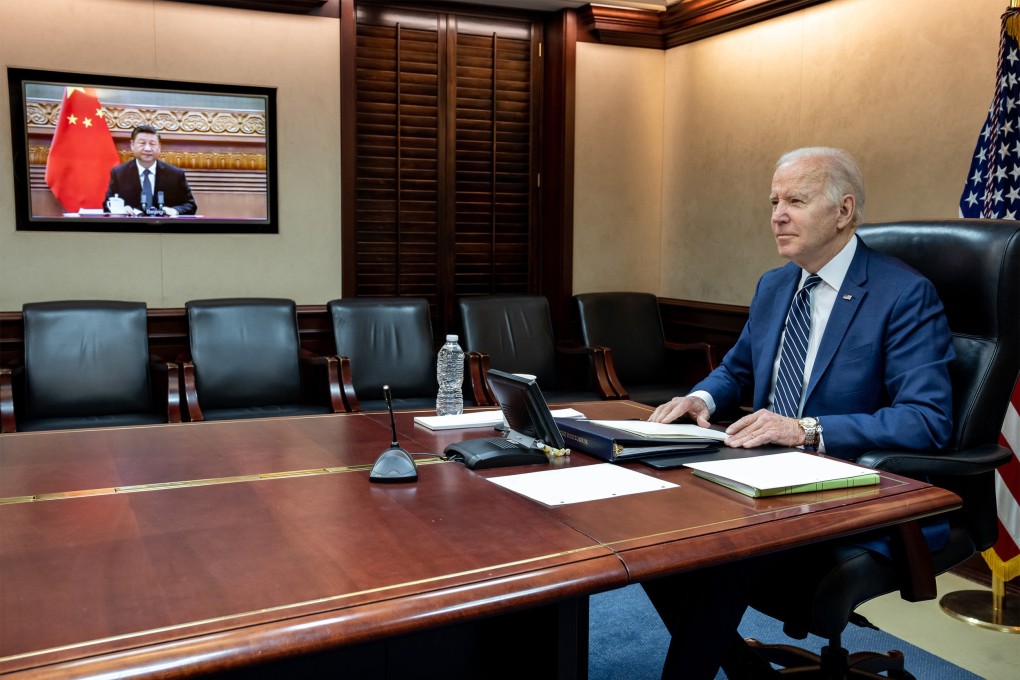Editorial | More than ever, the world needs China and the US to work together
- Regardless of bilateral and geopolitical tensions, it can only be good for the leaders of the world’s two largest powers to clarify their positions. But candour needs to be backed up by concrete actions, not only in both nations’ interests, but also for the sake of the global balance of power and peace and stability

The Russia-Ukraine war inevitably dominated Friday’s video call between President Xi Jinping and President Joe Biden. It is, after all, the biggest disruption to global peace and the balance of power in decades. As the world’s two biggest economies, the US and China both have a lot at stake. Unfortunately, the war is far from the only divisive issue between them. Geopolitical tensions have prevented them from truly working together to bring about negotiations and a peaceful resolution of the conflict.
Sadly that remains the case after the two-hour virtual meeting. However, so long as Moscow and Kyiv cannot negotiate a ceasefire, it is essential the two major powers – one a strategic partner of Russia and the other a supporter of Kyiv – maintain their dialogue despite their differences. In that sense the video call served its purpose.
The Chinese side described it as “candid and in-depth”, meaning that despite sharp divisions, both sides understand the need to discuss them openly to avoid any misunderstanding.
China is particularly angry over Washington’s perceived lack of sincerity over issues core to its national interests – such as the status of Taiwan. Biden reiterated that the US does not seek a new cold war, or to change China’s system or revitalise alliances against it. He also stressed that the US does not support “Taiwan independence” or intend to seek a conflict with China.
To leave no doubt about the importance to China of these assurances, particularly on Taiwan, Xi said: “I take these remarks very seriously”. He stressed the need to keep differences “under control” and to build a steadily growing relationship.
He also spelt out a clear stance on the war, saying China did not want to see the situation in Ukraine to come to this. It stood for peace and opposed war. China always remained free to judge the situation based on its own assessment, meaning opposition to US-led sanctions against Russia does not indicate support for Russia’s military actions but concern for the impact on the global economy. He called for the creation of an environment conducive to peace talks.
